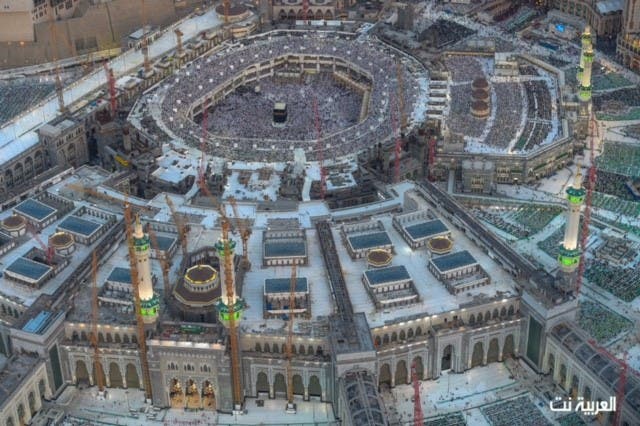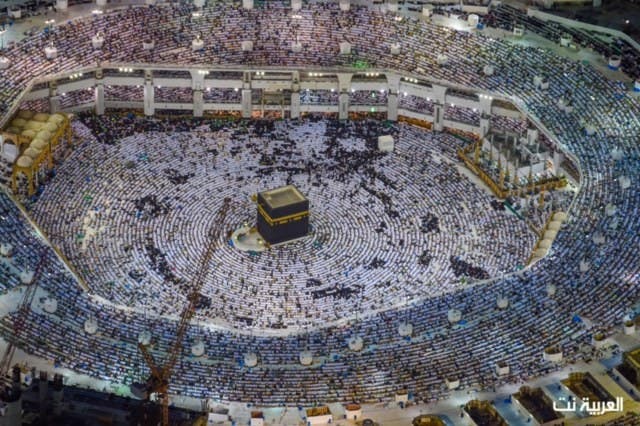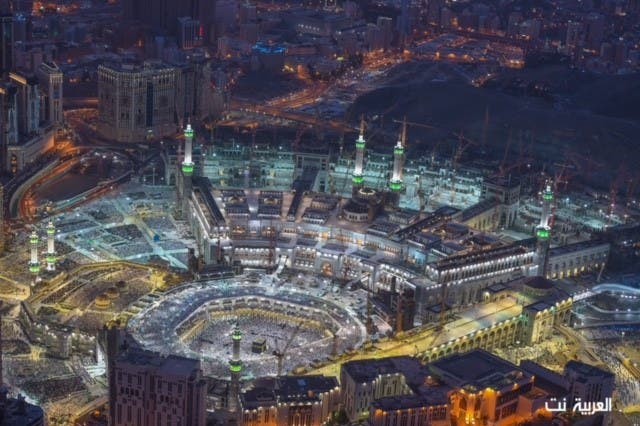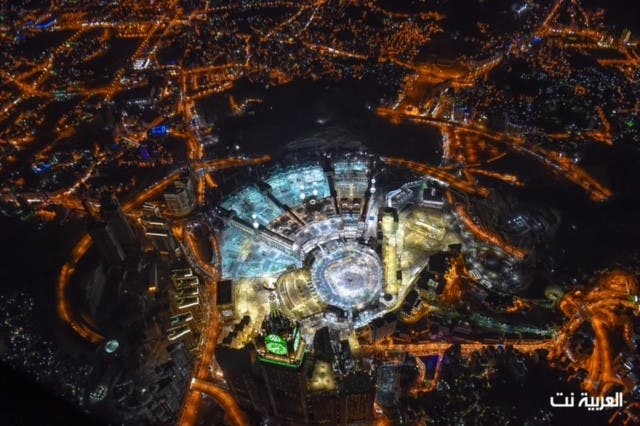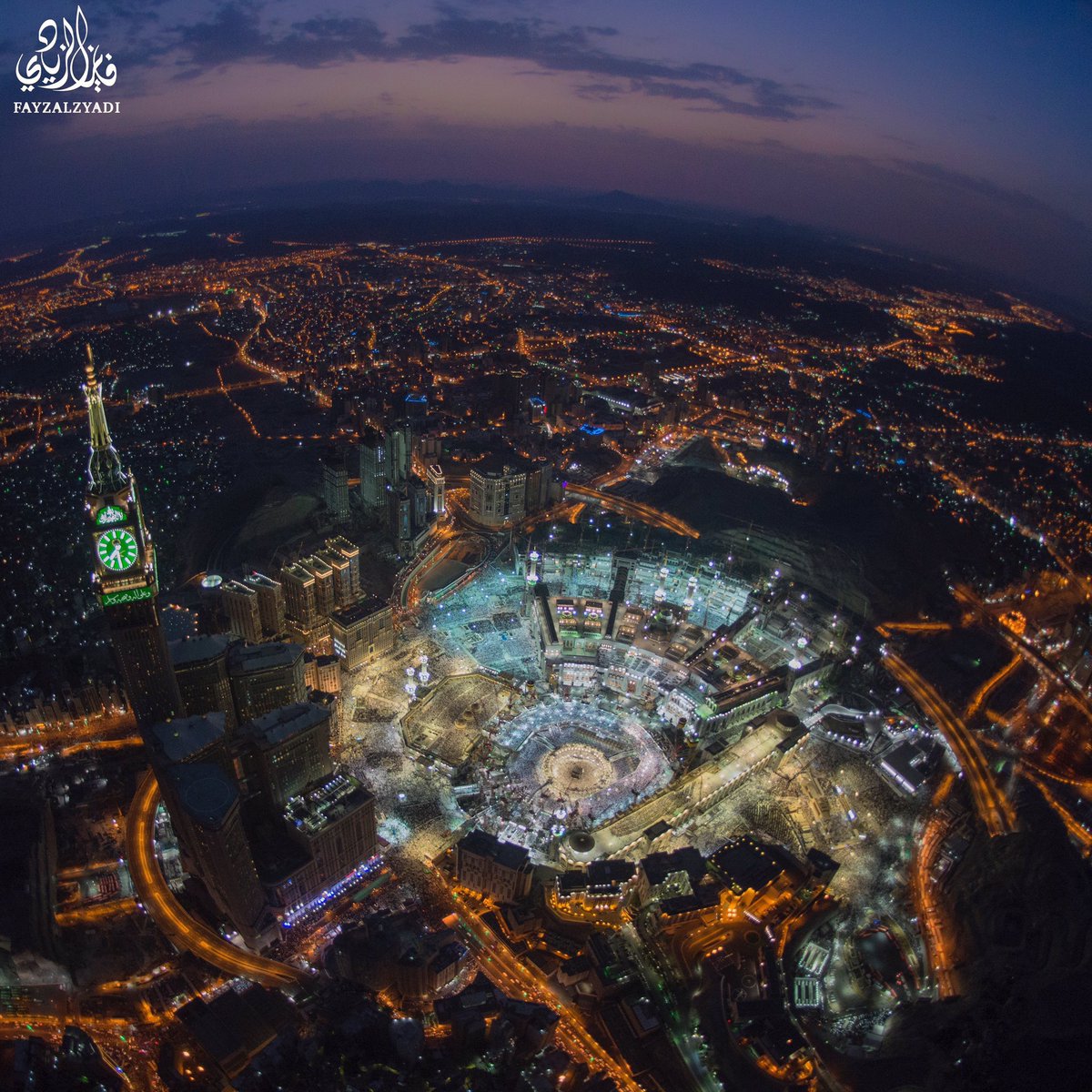Two trains every hour between the holy cities
Friday 24 June 2016
MADINAH: Thirty-six trains would be running every day, two every hour between Makkah and Madinah, transporting on average 15,000 passengers.
Most parts of the multibillion high-speed Haramain railway line will be completed this year.
There are major stations in each of these cities including Jeddah, supported by bus stops and footpaths.
The train station in Madinah contains world-class facilities.
Currently, tests are being conducted on the lines.
The main train station is 9 km from the Prophet’s Mosque and 13 km from Madinah’s airport.
The main building includes a lounge for visitors, VIP lounge, mosque that can accommodate about 1,000 worshippers, center for Civil Defense, helipad, sidewalks for passengers waiting, and car park with a capacity of about 1,000 vehicles for short periods and of about 690 cars for long periods.
The main building has 19 elevators for travelers and staff, and a tunnel that links King Abdul Aziz Road and the station, in addition to elevators in the car parks and at the mosque.
It will have 12 electric escalators that link the ground floor, second floor and the third floor. It will also have a stairway inside the main building, parking lots, subway and a civil defense building.
Air conditioning systems are spread out in all the station buildings and facilities. All project facilities are covered with 417 surveillance cameras, in addition to a safety system.
http://www.arabnews.com/node/944236/saudi-arabia
Selfie snappers obstructing tawaf
Thursday 30 June 2016
MAKKAH: Pilgrims taking selfies and recording video clips were obstructing others performing the tawaf around the Kaaba, according to a report by an online publication on Wednesday.
This was particularly troublesome in Ramadan because of the large number of pilgrims circumambulating on the mataf in Makkah’s Grand Mosque, the report said.
Hasan Al-Ghamdi, a pilgrim, said some people cause a great deal of trouble by stopping during the tawaf to take images of themselves and their children. People bump into each other, which was particularly bad for the elderly and those with disabilities.
Abdullah Al-Saudah said he was performing tawaf when people stopped suddenly. “I thought somebody fell in the rush. After much effort, we discovered that some people performing Umrah were taking selfies near the Maqam Ibrahim.”
He said photography should be prohibited during the tawaf and saie, the walking between the hillocks of Safa and Marwa.
Naif Al-Hamd, a judge at Riyadh’s appeals court, said the Qur’an prohibits people from engaging in activities that divert their attention away from their devotions, as outlined in Surat Al-Zumar, verse 11. This applies to photography, he said.
http://www.arabnews.com/node/947071/saudi-arabia
Intensify efforts to ensure comfort of worshipers: King
Jun 29, 2016
Makkah — Custodian of the Two Holy Mosques King Salman has ordered that efforts should be intensified to provide more comfort and security to worshipers during the last 10 days of the holy month of Ramadan.
Chairing the weekly session of the Council of Ministers at Safa Palace here late Monday night, King Salman said that the Kingdom was proud and honored to serve the guests of Allah.
The King highlighted the expansion of the Two Holy Mosques and holy sites to provide the highest degree of comfort, tranquility, security and reassurance to all Muslims.
The Council of Ministers thanked the King for the great attention and care being given to the two holy cities to enable worshipers to perform their rituals in an atmosphere of security, peace and comfort, Minister of State, Cabinet member and acting Minister of Culture and Information Essam Sayeed said in a statement to the Saudi Press Agency following the Cabinet session.
The Cabinet lauded the depth of historical and strategic relations between the Kingdom and the US and the progress that these relations are currently witnessing in all fields.
It said that the talks that Deputy Crown Prince Muhammad Bin Salman, second deputy premier and minister of defense, had with President Barack Obama, a number of officials and executives of various companies will further enhance Saudi-US cooperation in the light of Vision 2030 and the National Transformation Program.
The Cabinet appreciated the remarks made by UN Secretary General Ban Ki-moon during his meeting with the Deputy Crown Prince in which he lauded the Kingdom’s assistance provided to displaced Syrians and developing countries and praised the leadership role played by the Kingdom in the region and the world and its strong support for the UN and its agencies.
The Cabinet approved a number of arrangements to help Saudis who are unable to pay their rent and required licensed real estate agents to register the contracts of all rented housing and commercial units electronically through the electronic network.
http://saudigazette.com.sa/saudi-ara...rshipers-king/
Millions converge on Makkah for Night of Power
Jun 30, 2016
MAKKAH — Millions of Muslims from around the world as well as other parts of the Kingdom are converging on the Grand Mosque in Makkah to perform Umrah and take part in special prayers in the final phase of Ramadan, which is considered to include the holiest days of the fasting month.
The traffic heading to the holy city is getting intense day after day. All government departments have mobilized their human and material resources to welcome the mammoth crowd of worshippers and facilitate their stay in Makkah providing them with a spiritual atmosphere.
The pilgrims engage in special prayers seeking the Lailat Al-Qadr, or the Night of Power, when the first verses of the Holy Qur’an were revealed to the Prophet Muhammad, peace be upon him. According to the Qur’an, (worship on) the night is better in reward than (worship in) a thousand months.
Though there is no clear indication in the Islamic texts about the exact date, based on a saying of the Prophet scholars believe the Night of Power falls on one of the odd nights in the last 10 days of Ramadan.
“Whoever spends this night in prayer out of sincere faith and in the hope of reward from God will be forgiven all his previous sins,” the Prophet said in a Hadith reported by Bukhari, the most authentic book of traditions.
Custodian of the Two Holy Mosques King Salman and Crown Prince Muhammad Bin Naif have given instructions to government departments and public agencies to extend all-out efforts to make the stay of the guests of God in Makkah and Madinah comfortable.
Efforts have been made to provide the faithful with adequate accommodation, keep Makkah and its surrounding clean and tidy, ensure security and safety of pilgrims and control traffic to ensure the smooth flow of vehicles in the central area of the city.
“The Ramadan plan focuses on ensuring the smooth flow of pilgrims to and from the Grand Mosque,” said an official of the Presidency of the Two Holy Mosques, adding that there is good coordination between the presidency, Haram Security Force and the crowd management department.
“We provide a host of services to the guests of God,” the official said while urging pilgrims and worshippers not to enter the mosque while the faithful come out after prayers to avoid congestion and possible stampedes.
The mayoralty has intensified cleaning services throughout Makkah to keep the city and its environment clean by deploying a large number of cleaning workers. Its officers check shops selling foodstuffs as well as street vendors to make sure they comply with hygiene regulations.
The Health Affairs in Makkah on the other hand has set out a complete plan to protect pilgrims from contagious diseases. It has set up clinics inside the Grand Mosque to provide quick medical assistance and first-aid services to pilgrims who may fall sick.
Public security agencies have deployed adequate number of officers all over Makkah to ensure law and order, safeguard the security of pilgrims, control crowds and stop any negative practices. Traffic officers prevent vehicles from entering the central area of Makkah and divert them to huge parking areas outside the city. A shuttle service takes the worshippers from various parking lots to the vicinity of the Grand Mosque and back.
http://saudigazette.com.sa/saudi-ara...h-night-power/
25,000 rugs in Grand Mosque
Jun 30, 2016
Some 25,000 rugs, each with a length of 3 to 4 meters, adorn the floors of the Grand Mosque and its surrounding plazas. Of the total, 21,000 rugs are actually laid down and 4,000 kept in reserve. If spread out in a straight line, the total length of the rugs could reach as many as 90 kilometers.
http://saudigazette.com.sa/saudi-ara...-grand-mosque/
Taif, Saudi Arabia, Asharq Al-Awsat – Al Taif al Ma’nous, or amiable Taif, as people prefer to call it, is a colorful city full of contradictions and is the bride of Saudi summer resorts. I
ts fertile lands are home to a variety of fruits, such as berries, grapes, apples and pomegranates, and flowers, adding to the freshness of the air. It is crowned by a warm sunshine that reveals the many myths and secrets of this legendary city lying over the Al Sarawat Mountains in western Saudi Arabia.
Famous for the unique scent of its roses and flowers, Taif remains in the memory of its visitors long after they have departed. It is said that whoever forgets to give his beloved a bottle of nectar from Taif does not know the meaning of true love or its secrets. No wedding or joyous occasion is complete without flowers from the resort town.
Obaid al Qureishi, who cultivates roses for a living, told Asharq Al Awsat the flowers of Taif are unparalleled; while Damascene roses are bigger and sometimes more beautiful, the flowers in Taif are distinguished by their strong scent. He also indicated that attempts by large farm owners to plant Damascene roses failed because they were not native to the region. “The secret lies in the [Taif] soil which is watered by rain and dew.”
The suburbs of Taif and its valleys, such as al Huda, al Shafa, al Ghadeerayn and Wadi Mahram, are celebrated for the cultivation of roses, to which farmers turned to because it brings in more revenue than the cultivation of vegetables and wheat. However, this year’s harvest suffered from frost and the production for 2006 is expected to be limited, thereby doubling the price of roses.
Farmers in this Saudi resort city rely on the ancient agricultural calendar and astrology. Sowing begins during the month of Ramadan and lasts for 75 days; farmers dig ridges in the soil where the saplings- carefully cut from roses- are placed and covered with fertilizers. They are watered according to a particular schedule and at certain times of the day and enjoy great care and attention. Harvest begins in April and lasts until the end of May. The height of rose bushes is carefully controlled and reaches a maximum of 1.5 meters. According to al Qureishi, this increases the ratio of roses per bush. On average, one bush will produce 250 roses every day. Picking takes place before sunrise, when roses are usually moist and aromatic. Roses are then sold by the thousand to distillation laboratories for $13 dollars. Mona al Utaybi, a teacher at a school for girls in al Hada, said that, during the harvest season, students race to offer their teachers bouquets of roses every morning. In her opinion, roses are affected by their surroundings. “Farmers with a pure heart and a good soul produce fresh aromatic flowers while those with evil intentions only produce shriveling flowers full of worms,” she said.
Um Ali, a Saudi woman aged 70, recalled the times when women and their daughters would go out to the field and pick roses in the early morning during harvest. “They worked in small groups, standing in horizontal lines while singing the praise of Taif’s roses and competing to cut the largest number of roses.” With the advent of technology and cutting machines, women are no longer seen in the fields and foreign laborers now collect the roses. The streets of Taif are full of vendors showcasing their latest roses and selling fruit to the thousands of visitors who flock to the city.
Rose production is dominated by five families, al Qadi, al Kamal, al Qureishi, al Ghuraybi and al Solhi. Together, they oversee most of the cultivation and laboratories in Taif.
Rose House laboratory, owned by the al Qadi family, is located in a large old building in the al Salamah neighborhood. It is one of the oldest and biggest in the city. Its name derives from the strong aroma that permeates its rooms and extends to the street. Every morning, during harvest, Mohammed Al-Qadi’s four sons, Hassan, Abdullah, Omar and Ibrahim, rise early to receive the caravans of farmers who come to sell their roses.
Abdullah al Qadi meets the farmers at the entrance of the labs prior to the counting and weighing process. Every one thousand roses are bundled together, weighed and placed in large containers made of palm tree leaves or plastic ribbons. Abdullah keeps one rose from each bundle as a record and notes every transaction in a small notebook.
During harvest, the al Qadi labs can receive up to a million roses. Over the years, the family has established warm relations with the farmers who do not hesitate to ask for loans; these are usually deducted from the following season’s payments.
After the noon prayer, the roses are aired and spread over 150sq meters, forming a huge bed of roses. Omar and Ibrahim are responsible for the distillation process, which requires much attention and great care, as a small mistake could prove very costly. The labs include 96 copper distillation pots where the roses are boiled in order to release their essence. Pots have a maximum capacity of 20 thousand roses. Each is periodically coated with tin in order to prevent the oxidization of copper. According to Omar, roses from the al Shafa area are generally large compared to these from al Hada, the scent of which is more powerful.
Unlike Oud, which is imported to the Gulf from Burma and Cambodia, rose essence is extracted locally but loses potency with the passing of time, especially if exposed to light and heat. Omar’s advice was to remove the plastic covering from the bottle and then close it firmly because plastic interacts unfavorably with the essence thereby affecting its intensity. The al Qadi laboratories concentrate more on the production of rose water than essence and they are Saudi Arabia’s largest producers, exporting surplus product to Gulf countries.
Rose water has many uses, including in the baking of Arab pastries and as a flavoring to drinking water. There are two types of rose water: the first is stored in small 250ml bottles and costing $2.5 US dollars and the more expensive kind, which costs $9 US dollars, used for weddings and receptions across the Gulf. During celebrations, guests are sprinkled by rose water using a special ornate watering can. Women also use rose water to cleanse their faces and nourish their skin, sometimes adding it to body masks to give them a powerful rose smell. In Taif, rose water is believed to cure mild depression. Rose water and rose essence are also used to wash the Holy Kaaba twice a year, as a sign of the great care that befalls the most sacred of sacred Islamic objects.
Ibrahim al Qadi revealed how best to identify the authentic rose essence saying, “The authentic essence is known for its powerful unique aroma. It has a yellowish color, sometimes even slightly greenish. The greener it looks, the worse the quality becomes. The essence is not glutinous like oil and does not stain the skin or clothes when applied as perfume. Contrary to popular belief, the aroma does not last for very long as it is absorbed by the skin.”
“One small bottle of 11.7 grams of authentic nectar requires approximately forty thousand roses and is usually sold for roughly 1500 Saudi Riyals (400 US Dollars).” Al Qadi states that some sellers increase the prices intentionally so that the customer believes that he is purchasing high quality nectar. He adds that there are no degrees of quality in authentic Taif nectar; it is either good or bad. He says, “Good quality nectar is taken from around forty thousand flowers that have not been boiled more than twice as the more the flowers have been boiled the more affect this has on the quality of the nectar. Bad quality nectar is that which has been taken from less than forty thousand flowers that have been boiled several times.”
Taif is one of the oldest cities in the world. It is difficult to find a book on the Arabian Peninsula that does not mention this city. Taif neighbors the holy city of Mecca. Its heritage and natural and ancient monuments hold many stories for the generations to come.
Taif is home to famous valleys such as Wadi Al-Naml that was visited by King Solomon and the holy valley of Wadi Wej where the Prophet Mohammed prohibited any hunting or for anyone to cut down its trees or to threaten its wildlife. South of the city is Okaz market, one the most famous Arab markets. The city was also home to some of the Prophet’s companions such as Abdullah Ibn Abbas. In addition, Hajjaj Ibn Yusuf Thaqafi, a tyrannical leader of the Arabs had lived there. The city was of much importance to the Muslim Caliphs and it was believed that the first Ummayad Caliph Muawiyyah told the governor of Taif, Saeed Ibn Al Aas that he was blessed as he had “spent the summer in Taif, the winter in Mecca and spring in Jeddah.”
http://english.aawsat.com/2006/05/article55266695/the-scent-of-taif
https://en.wikipedia.org/wiki/Ta'if
-----------------------------------------------------------------------------------------------------------------------------------------------------------
Taif is a beautiful ancient Hijazi city located almost 2000 meters above sea level. Its agricultural products are fantastic and exported to many countries worldwide and it is especially famous for its flowers and rose water which is used for washing Kaaba.
Once KSA opens up for tourism for real and given the city's close proximity to Makkah, Madinah and Jeddah, it will become a major tourist hit alongside numerous other cities and areas of Hijaz and other provinces and historical regions of KSA. That would be a very good thing for the country and many locals who could work in the tourism sector.
@waz








































